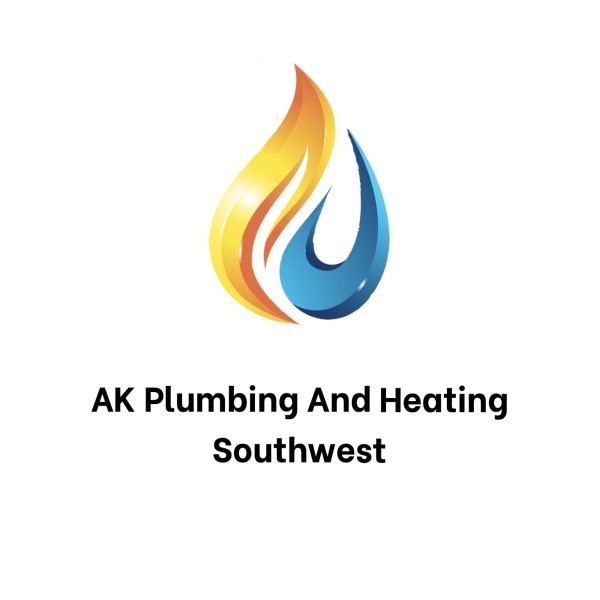Boiler/Heating Engineers in Plymouth
Welcome to Homestyle Plumbing & Heating, your trusted partner for all plumbing and heating needs in Ellacombe and across Devon. We specia... read more »
Welcome to AK Plumbing and Heating Southwest, your trusted experts in Princetown, offering exceptional plumbing and heating services acro... read more »
Welcome to Plumbing and Heating Solutions, your trusted experts in plumbing and heating services located in King's Tamerton, proudly serv... read more »
A.PRITCHARD PLUMBING & HEATING is yo... read more »
Welcome t... read more »
Welcome to Mike Sibley Plumbing and Heating, your tru... read more »
Welcome to Dugs A Plumb, your go-to experts for all t... read more »
Welcome to Western Energy, your trusted partner for a... read more »
Welcome to A Griffiths Plumbing and Heating, your tru... read more »
Welcome t... read more »
Welcome to Devon Heating Services Ltd, your trusted p... read more »
Welcome to Tarka Plumbing, your go-to solution for al... read more »
RO-LO Plumbing And Heating is your g... read more »
Welcome to Gascon Heating, your trusted partner for a... read more »
Welcome to Heatsafe Group Ltd, your trusted Boiler an... read more »
Welcome to Heat 2 Home, your go-to solution for all p... read more »
Search Boiler/Heating Engineers in places nearby
- Boiler/Heating Engineers in Ashburton
- Boiler/Heating Engineers in Axminster
- Boiler/Heating Engineers in Barnstaple
- Boiler/Heating Engineers in Bideford
- Boiler/Heating Engineers in Buckfastleigh
- Boiler/Heating Engineers in Budleigh Salterton
- Boiler/Heating Engineers in Crediton
- Boiler/Heating Engineers in Dartmouth
- Boiler/Heating Engineers in Dawlish
- Boiler/Heating Engineers in Exeter
- Boiler/Heating Engineers in Exmouth
- Boiler/Heating Engineers in Great Torrington
- Boiler/Heating Engineers in Higher Dunstone
- Boiler/Heating Engineers in Holsworthy
- Boiler/Heating Engineers in Honiton
- Boiler/Heating Engineers in Ilfracombe
- Boiler/Heating Engineers in Ivybridge
- Boiler/Heating Engineers in Kingsbridge
- Boiler/Heating Engineers in Lynton
- Boiler/Heating Engineers in Newton Abbot
- Boiler/Heating Engineers in Northam
- Boiler/Heating Engineers in Okehampton
- Boiler/Heating Engineers in Ottery St Mary
- Boiler/Heating Engineers in Paignton
- Boiler/Heating Engineers in Salcombe
- Boiler/Heating Engineers in Seaton
- Boiler/Heating Engineers in Sidmouth
- Boiler/Heating Engineers in South Molton
- Boiler/Heating Engineers in Tavistock
- Boiler/Heating Engineers in Teignmouth
- Boiler/Heating Engineers in Tiverton
- Boiler/Heating Engineers in Torquay
- Boiler/Heating Engineers in Totnes
- Boiler/Heating Engineers in Wotton Cross
Introduction to Boiler/Heating Engineers in Plymouth
Boiler and heating engineers in Plymouth play a crucial role in ensuring that homes and businesses remain warm and comfortable throughout the year. These skilled professionals are responsible for installing, maintaining, and repairing heating systems, which are essential for both residential and commercial properties. In this article, we'll explore the various aspects of boiler and heating engineering in Plymouth, providing insights into the services offered, qualifications required, and the importance of hiring certified professionals.
The Role of Boiler/Heating Engineers
Boiler and heating engineers are specialists who focus on the installation, maintenance, and repair of heating systems. Their expertise ensures that boilers operate efficiently and safely, providing reliable heating and hot water. These engineers work with a variety of systems, including gas, oil, and electric boilers, as well as central heating systems and underfloor heating.
- Installation: Engineers install new boilers and heating systems, ensuring they are set up correctly and safely.
- Maintenance: Regular maintenance is crucial for the longevity and efficiency of heating systems. Engineers perform routine checks and servicing.
- Repair: When systems break down, engineers diagnose and fix issues to restore heating and hot water.
Qualifications and Training
Boiler and heating engineers in Plymouth must possess specific qualifications and undergo rigorous training to ensure they are competent and safe to work on heating systems. Key qualifications include:
- Gas Safe Registration: Engineers working with gas boilers must be registered with Gas Safe, the official gas safety organisation in the UK.
- NVQ/SVQ in Plumbing and Heating: These qualifications demonstrate a comprehensive understanding of plumbing and heating systems.
- Apprenticeships: Many engineers start their careers through apprenticeships, gaining hands-on experience while studying.
Importance of Hiring Certified Professionals
Hiring certified boiler and heating engineers is essential for several reasons:
- Safety: Certified engineers ensure that installations and repairs are carried out safely, reducing the risk of accidents or leaks.
- Efficiency: Properly installed and maintained systems operate more efficiently, saving energy and reducing costs.
- Compliance: Certified engineers ensure that systems comply with local regulations and standards.
Common Services Offered by Boiler/Heating Engineers
Boiler and heating engineers in Plymouth offer a wide range of services to meet the needs of their clients. These services include:
- Boiler Installation: Installing new boilers to replace outdated or inefficient systems.
- System Upgrades: Upgrading existing systems to improve efficiency and performance.
- Emergency Repairs: Providing rapid response to breakdowns and emergencies.
- Annual Servicing: Conducting routine checks and maintenance to ensure systems are running smoothly.
Choosing the Right Boiler/Heating Engineer in Plymouth
When selecting a boiler or heating engineer in Plymouth, it's important to consider several factors to ensure you choose the right professional for the job:
- Experience: Look for engineers with a proven track record and extensive experience in the field.
- Reputation: Check reviews and testimonials from previous clients to gauge the quality of service.
- Certifications: Ensure the engineer is certified and registered with relevant organisations.
Understanding Boiler Types and Their Benefits
Boilers come in various types, each with its own benefits and suitability for different properties. Understanding these types can help you make informed decisions when installing or upgrading your heating system:
- Combi Boilers: These boilers provide both heating and hot water directly from the boiler, making them ideal for smaller homes with limited space.
- System Boilers: Suitable for larger homes, system boilers require a separate hot water cylinder but no cold water tank, offering a constant supply of hot water.
- Conventional Boilers: Also known as regular boilers, these are best for homes with traditional heating systems and high hot water demand.
Energy Efficiency and Environmental Impact
Energy efficiency is a key consideration when choosing a boiler or heating system. Modern boilers are designed to be more efficient, reducing energy consumption and lowering carbon emissions. By upgrading to a high-efficiency boiler, homeowners can significantly reduce their environmental impact and save on energy bills.
Cost Considerations for Boiler/Heating Services
The cost of boiler and heating services can vary depending on several factors, including the type of service required, the complexity of the job, and the engineer's experience. It's important to obtain quotes from multiple engineers to compare prices and ensure you receive value for money.
Maintaining Your Heating System
Regular maintenance is essential for keeping your heating system in top condition. Annual servicing by a qualified engineer can help identify potential issues before they become major problems, ensuring your system operates efficiently and safely.
Dealing with Common Boiler Issues
Boilers can experience a range of issues, from minor faults to major breakdowns. Common problems include:
- No Heat or Hot Water: This could be due to a faulty thermostat, broken diaphragm, or airlock.
- Leaking and Dripping: Leaks can occur due to a variety of reasons, including a broken internal component or corrosion.
- Strange Noises: Banging, whistling, or gurgling noises could indicate air in the system, low water pressure, or a faulty pump.
The Future of Heating Engineering in Plymouth
The field of heating engineering is constantly evolving, with new technologies and innovations emerging to improve efficiency and sustainability. In Plymouth, engineers are increasingly focusing on renewable energy solutions, such as solar thermal systems and heat pumps, to reduce reliance on fossil fuels and lower carbon emissions.
Frequently Asked Questions
- What qualifications should a boiler/heating engineer have? Engineers should be Gas Safe registered and hold relevant NVQ/SVQ qualifications in plumbing and heating.
- How often should I service my boiler? It's recommended to service your boiler annually to ensure it operates efficiently and safely.
- What are the signs of a faulty boiler? Common signs include no heat or hot water, strange noises, and leaks.
- Can I install a boiler myself? No, boiler installation should be carried out by a qualified and certified engineer to ensure safety and compliance.
- How can I improve my boiler's efficiency? Regular maintenance, upgrading to a high-efficiency model, and ensuring proper insulation can improve efficiency.
- What should I do in a boiler emergency? Turn off the boiler, ensure good ventilation, and contact a qualified engineer immediately.
Final Thoughts on Boiler/Heating Engineers in Plymouth
Boiler and heating engineers in Plymouth are essential for maintaining the comfort and safety of homes and businesses. By understanding the services they offer, the qualifications required, and the importance of hiring certified professionals, you can make informed decisions about your heating system. Whether you're installing a new boiler, upgrading an existing system, or dealing with a breakdown, these skilled professionals are equipped to provide reliable and efficient solutions.
Send a message






